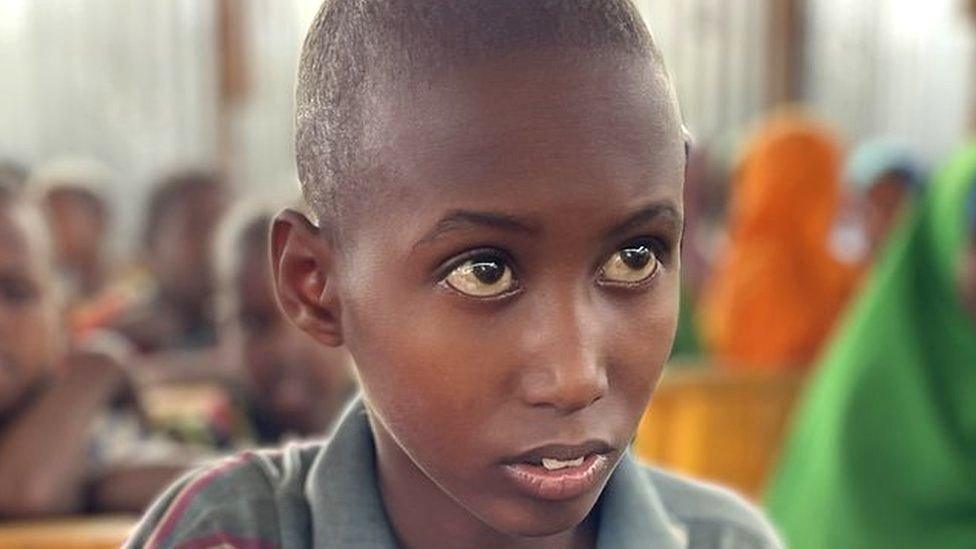Somalia drought: 'We're supporting our homeland from the UK'
- Published
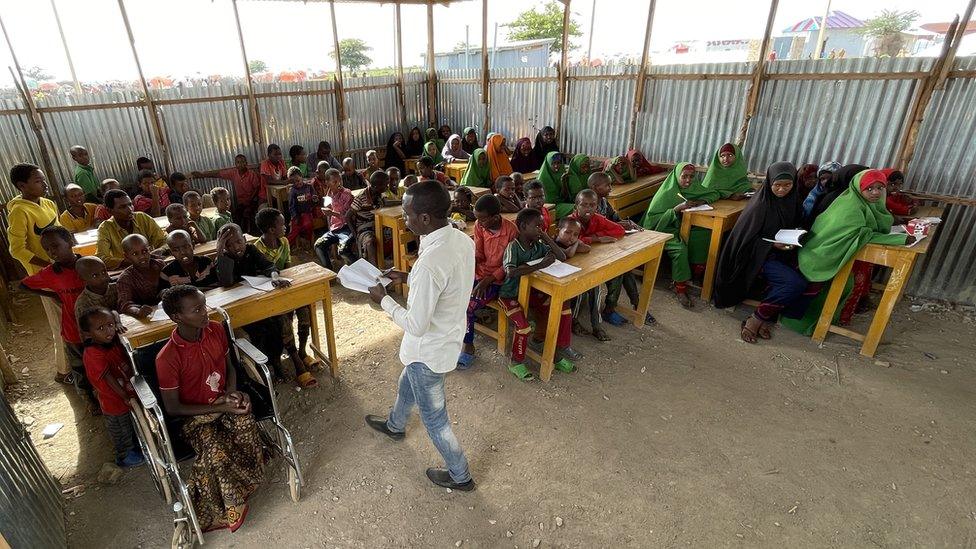
Young children have been dying in growing numbers in the country's fight against drought
Misery, hunger and death.
That is the reality Somalia faces due to a drought which has devastated the country's food supplies.
Somalia has narrowly avoided a full-scale famine this year but the number of people living in terrible conditions is still expected to rise in the coming months.
For Abdirahman Mustafa Salan, a British Somali in Birmingham who has family members in the East African nation, seeing what has been unfolding is difficult.
The 21-year-old was in Somalia five months ago and says he witnessed "daily suffering" amid the "extreme drought".
"You can see bones of the cattle on the floor, you can see the amount of trees that are dying and just twigs on the ground," he tells BBC Newsbeat.
"The extreme heat I felt on my skin was serious. And even if you're in the house, it's like you're outside."
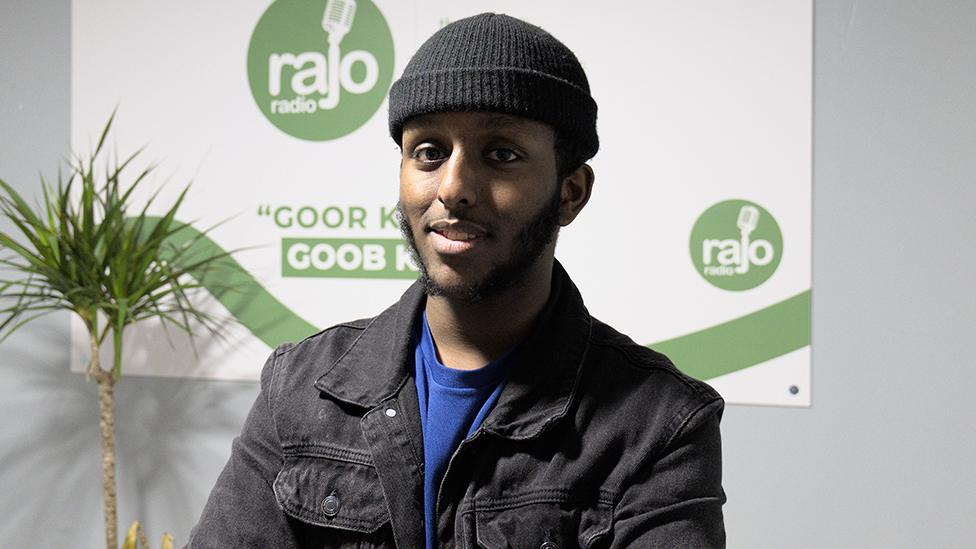
"Most of the Somali community is struggling, the economy is crashing, and the families are suffering daily from this," Abdirahman says
Access to running water might be something many take for granted, but Abdirahman says its precious value hit home when he was in Somalia.
"If you spill a bit of water on to the ground, they take it like a crime," he says.
"I understood how expensive the water is over there and how rare and scarce it is."
Trying to help Somalia
For aid workers in the country, Somalia's civil conflict is an obstacle to providing help to areas that need it.
"I see people suffering for hunger, children dying from malnutrition and pregnant mothers very malnourished," Ridwaan Hared, a Somali aid worker tells Newsbeat.
The 25-year-old is working in the country on behalf of Human Appeal and sees "a lot of crises".
"Humanitarian organisations have continued to do all that's possible to alleviate the suffering and save lives but I couldn't say it's enough in comparison to the crisis in Somalia."
A series of dry spells, made worse by climate change, is now putting at risk a traditional way of life that has lasted for many years.
Ben Rich looks analyses some of the most severe weather events of 2022
Ridwaan's colleague Warsame Ali is worried about the continued absence of rain in the months ahead.
He has seen people who have lost family members "because of hunger, because they didn't have anything to eat".
Help provided by Warsame and Ridwaan includes a clinic to provide malnourished mothers and children with nutrients to help them survive.
"But the need is much greater than the capacity of the organisation, because of the [size of] the disaster," says Warsame.
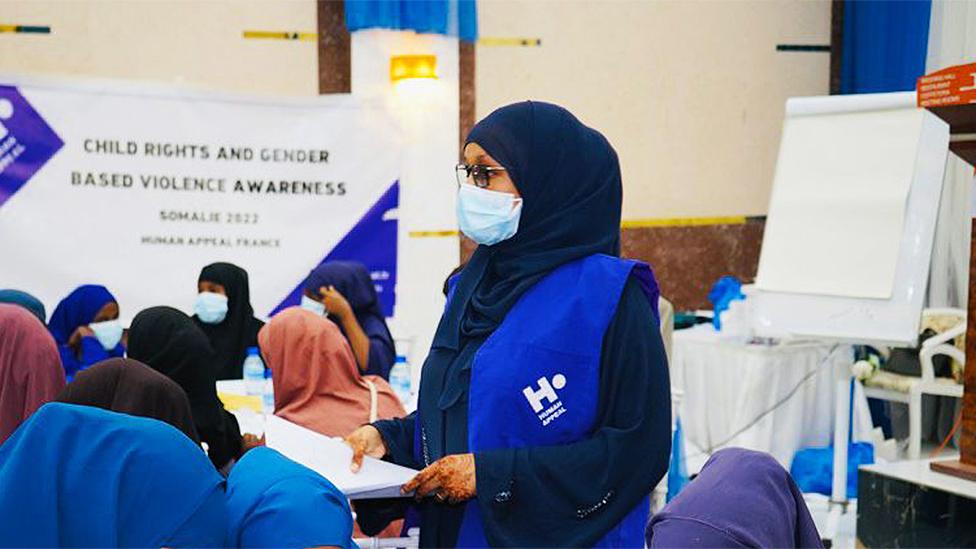
Ridwaan has been on the ground in Somalia trying to help
And there are also efforts to try and help from the UK, with fundraising pages and calls for support.
That includes Abdirahman, a presenter at RajoRadio - the first Somali digital radio station in Birmingham.
Through his platform, he tries to give the Somali community a voice, and says there are many who want to help but do not have the means to get in touch with charities.
This is where Rajo comes in to assist, he says.
"We want to be able to raise money and funding for charities that are actually at the forefront."
"Trying to support the people in Somalia," he adds.


Follow Newsbeat on Twitter, external and YouTube, external.
Listen to Newsbeat live at 12:45 and 17:45 weekdays - or listen back here.
Related topics
- Published2 January 2024
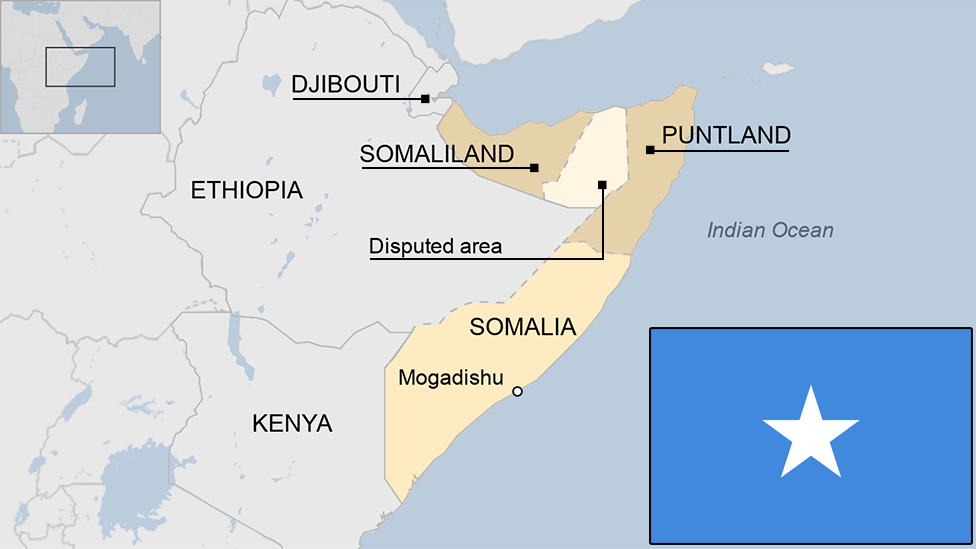
- Published17 October 2022
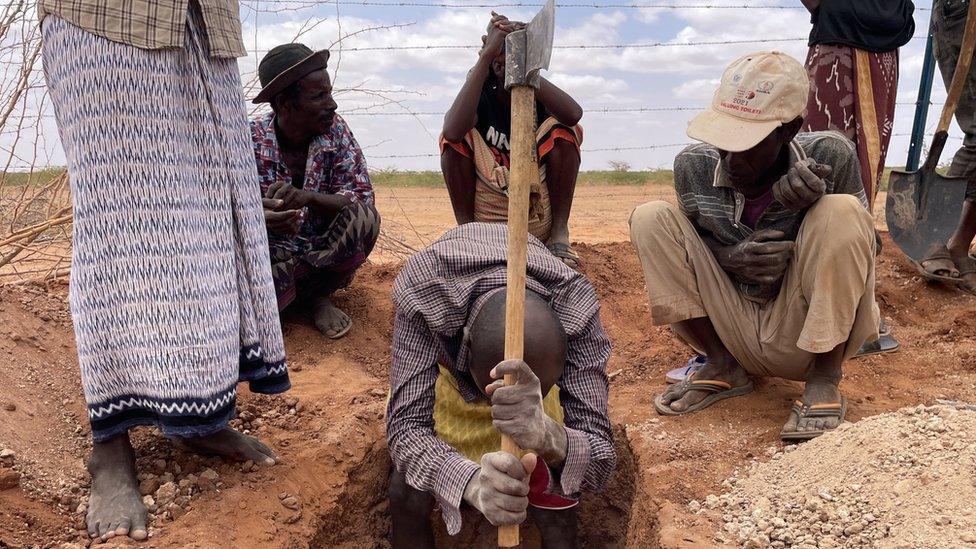
- Published4 October 2022
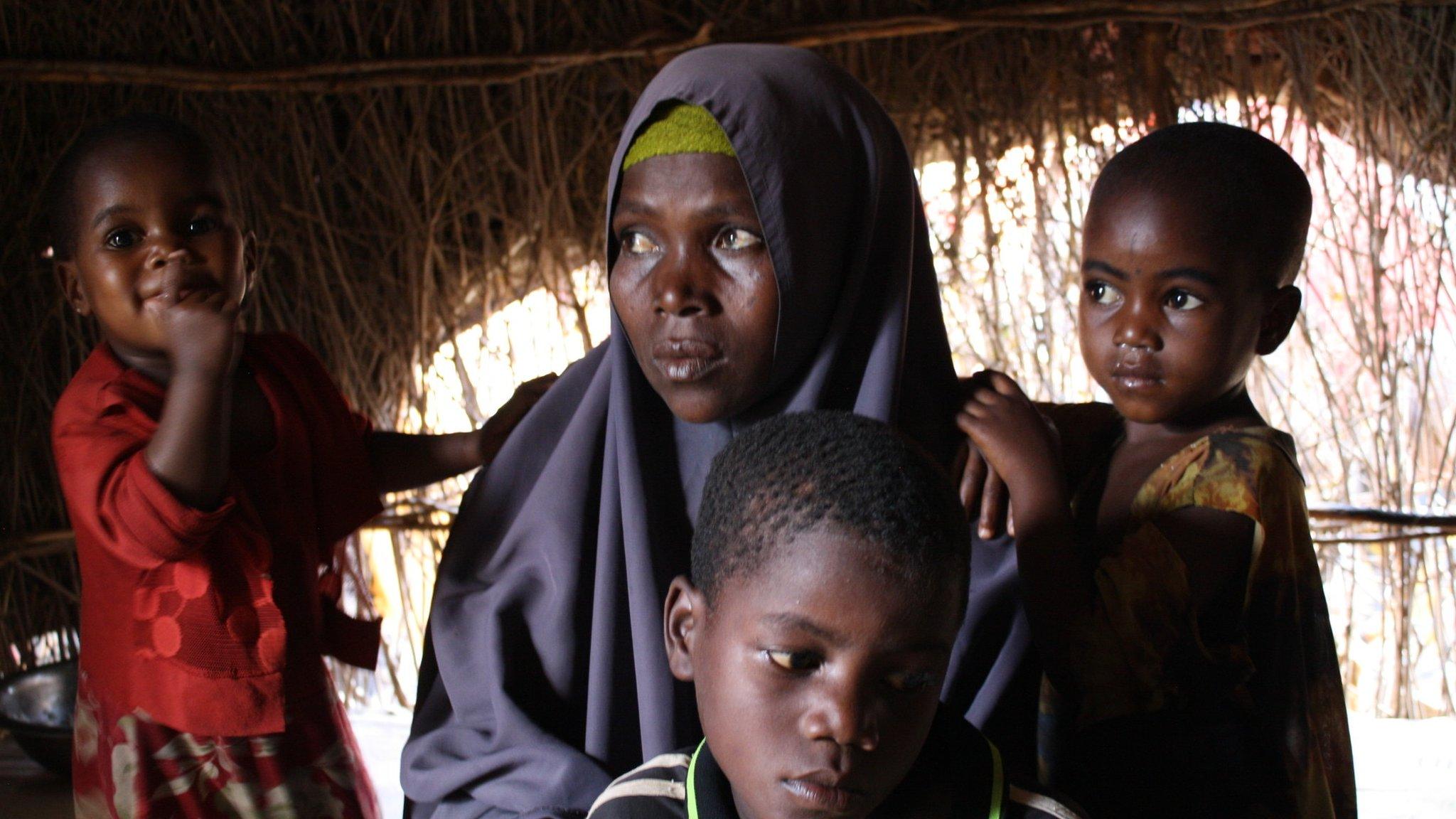
- Published20 July 2011
- Published15 November 2022
